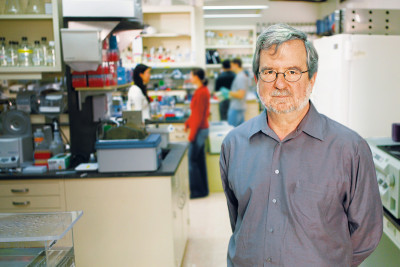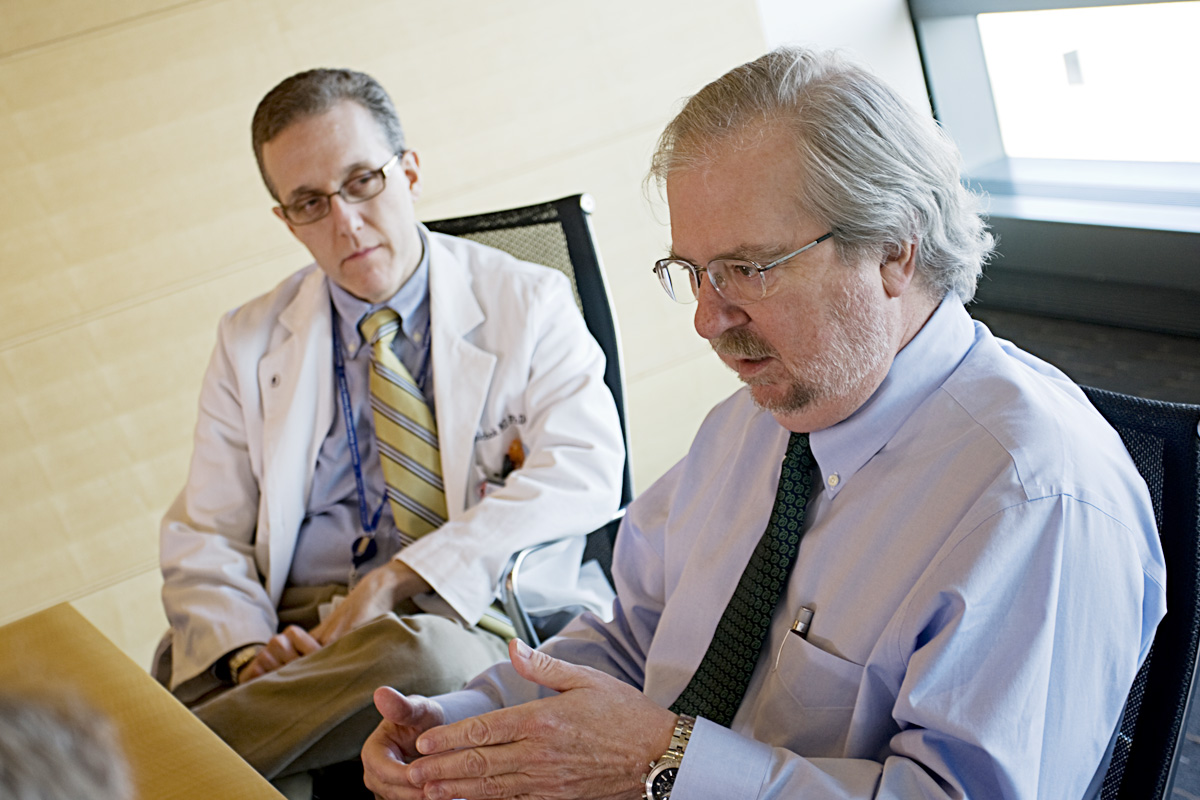
Immunologist James Allison in his lab at Memorial Sloan Kettering in 2005.
The Nobel committee this week awarded its Prize in Physiology or Medicine to work focused on cancer, specifically, James P. Allison and Tasuku Honjo for their work on immune checkpoint blockade. Dr. Allison was a member of the Sloan Kettering Institute from 2004 to 2012.
Unlike most other cancer drugs, checkpoint inhibitors target the immune system rather than the cancer itself. These drugs work by taking the brakes off immune cells, allowing them to better fight cancer. They are credited with opening an entirely new approach to cancer therapy and saving many lives.
Dr. Allison, an immunologist who now directs the immunotherapy program at MD Anderson Cancer Center in Houston, was the main pioneer of this approach. While a professor at the University of California, Berkeley, he discovered that an antibody made to block a molecule on T cells called CTLA-4 could cure cancer in mice.

Former MSK immunologist James Allison (right) with medical oncologist Jedd Wolchok at MSK in 2009.
Almost ten years later and following additional research, Dr. Allison joined MSK as Chair of the Immunology Program in the Sloan Kettering Institute. He came to MSK in part for the opportunity to work with clinicians and translational researchers to bring the drug to patients. He succeeded, and the results have proved more impressive than anyone could have imagined.
Dr. Jedd Wolchok, who directs the Melanoma Service at MSK, worked closely with Dr. Allison when they were colleagues at MSK, and continues to collaborate with him as part of the Parker Institute for Cancer Immunotherapy. He is elated by the choice of Dr. Allison and Dr. Honjo as this year’s Nobel awardees. “The world of cancer treatment changed because of their lifetime work and dedication,” he said.
Immunotherapy has actually been a focus at MSK since the late 1890s. And MSK scientists have been a part of all the major immunotherapy advances throughout the history of cancer treatment.